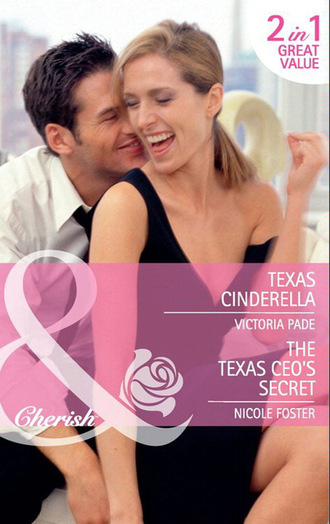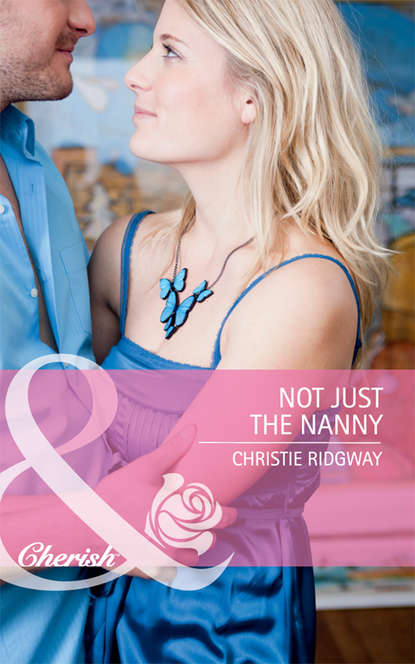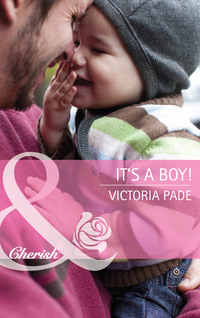
Полная версия
Texas Cinderella / The Texas CEO's Secret
“Still, you’re just plain serious, as far as I’ve seen. Maybe your mom and her cohorts should be worrying more about you than me.”
Okay, so there hadn’t been a whole lot of levity to any of the times they’d encountered each other since Friday night.
“This is business for me,” she reminded him.
He smiled again, a pleased, warm smile that she liked entirely too much. “I’m glad you said business and not work. I don’t think I like being work for anyone.”
“Just make sure business gets done from here on,” she pretended to chastise.
“Tomorrow, 9:00 a.m.,” he countered.
She wondered if she was going to arrive at the address on the paper and find him sitting behind a desk. And if she would be expected to spend from then until five o’clock on the opposite side of that desk taking dictation on the story of his life.
She wouldn’t put it past him.
But she knew better than to try to get any more information out of him about that, so she merely said, “Tomorrow, 9:00 a.m.”
That seemed to satisfy him. It showed in his smile as he went on peering into her face for a moment more before he said, “You can tell your mother that you aren’t.”
“That I aren’t what?”
He laughed. “That is some really rotten grammar for a journalist.”
“That I’m not what?” she corrected the mistake she’d made on purpose, trying not to bask in the sound of his laugh or the fact that she’d inspired it.
“You’re not bothering me. In fact, you’re kind of a little spitfire and I’m getting a kick out of it.”
“Little spitfire? You’re aware that that’s very condescending, aren’t you?” she said even though it gave her a tiny rush to hear that she was rousing something in him.
“Hey, I’m just a sheltered, pampered, out-of-touch rich boy, what do I know?” he joked.
Again Tanya smiled, adding a hint of a laugh to it. And maybe her lighter side really was a novelty to him because several minutes lapsed while Tate just seemed to study her as if he couldn’t quite figure her out.
Several minutes that made something else flash through Tanya’s mind—that people in this position, saying goodnight at the door after having spent an evening together and sharing a nice dinner, very often kissed…
Which of course was not going to happen, she told herself in no uncertain terms.
And it didn’t. Because then Tate said, “I’ll see you at nine,” and turned to retrace his steps to his car.
Tanya watched his retreating back, giving herself a silent but stern talking-to as she did.
There could not ever—ever—be thoughts of kissing when it came to Tate McCord.
That was absolutely, positively unthinkable.
Unthinkable and undoable.
Absolutely. Positively.
And if she was still standing there even after he was out of sight, even after she could hear his car engine restart, even after she’d heard him drive away?
It was because she was still silently lecturing herself about how she also—absolutely, positively—shouldn’t be wondering what it would be like to kiss the mighty Tate McCord, either…
Chapter Four
“Rosa, this is Tanya Kimbrough. Tanya, this is Rosa Marsh—Rosa pretty much runs this place. Rosa, Tanya is going to pitch in for us today as a volunteer. I know you can use her,” Tate said as he introduced Tanya to the heavyset nurse.
Then he leaned in close enough to Tanya’s ear to whisper so only she could hear, “I thought I’d give you the chance to see how one McCord spends Mondays. And since you’re so in touch with the real people, I figured you’d probably want to do more than just follow me around and take notes.”
Tanya could tell that Tate was enjoying this—there was pure satisfaction on his handsome face as he left her to the woman named Rosa.
When Tanya had arrived at the address Tate had written in her notepad she definitely hadn’t found a lead on an apartment for rent. She’d found a surgical clinic for the underprivileged in an extremely neglected portion of Dallas.
She’d also discovered that Tate was known there as Dr. Tate and that if anyone realized he was a McCord, it wasn’t an issue. He was just Dr. Tate.
And Tanya was a volunteer for the day.
She didn’t mind. It allowed her to watch him in action and pitching in was something she’d been taught to do even as a child. So Tanya followed Rosa’s instructions and went to work herself.
She primarily did the nurses’ bidding, performing cleanup and making sure patients were comfortable.
The small, inner-city facility was nothing at all like Meridian General Hospital. Sanitary conditions were met but that was about the best that could be said of it. Equipment was old, linens were clean but ragged, the linoleum floor was worn down to the cement beneath it in several places, and watermarks decorated the walls and ceiling.
Tanya would never have imagined Tate practicing there. Or fitting in with the two physician’s assistants and four nurses who were all earthy, outspoken and irreverent. But there wasn’t a single indication in anything she saw that made her think he held himself above any of them and they made it clear to her even when he wasn’t around that they liked and respected him, and that they felt lucky to work with a surgeon of his caliber.
And the patients—some of them homeless, almost all of them lacking insurance or the ability to pay, many not English-speaking—were nothing like the majority of patients at Meridian General either.
Yet never did she see Tate treat any one of them without respect or compassion.
Plus it wasn’t only their outpatient surgical needs—or even their general health needs—he met. He also seemed genuinely concerned for their well-being once they went beyond the peeling walls of the clinic. Numerous times Tanya overheard him ask if the patient had a home in which to recuperate. She saw him slip money to more than a few who clearly needed it. He even took the time to make phone calls to get additional assistance for two patients before he would release them.
She saw him go the extra mile over and over again, but not once did she have the sense that his actions were due to the fact that she was watching, or just to make himself look good. Most of the time he didn’t even know she was anywhere near, and there were several instances when she learned what good deed he’d done through the nurses talking to each other. She also saw the nurses take many patients’ nonmedical problems to him as if it were a common occurrence for them to enlist him, as if they knew from long before Monday that he was the person to go to.
By the end of the day Tanya wasn’t ready to paint him as a saint—with people who weren’t under his care he could be demanding and dictatorial. He could be outspoken about any slipups or oversights, and curt with patients’ friends or family members who rubbed him wrong. But she had to admit that he wasn’t what she’d expected. Or anything like what she’d known of him before. The image she’d had of him as she’d grown up on the peripheries of his life was suddenly altered.
Which didn’t help her personally.
Because while finding him awesomely sexy in scrubs was one thing, being impressed by him, discovering that he might actually have some substance, some character, some depth, was much more of a bump in the road for her. It made him more the kind of man she liked, which also made him attractive to her on a whole other level.
Just when she didn’t want him to be attractive to her at all…
The last patient wasn’t ready to leave the clinic until nearly eight o’clock that night. Then the staff closed up and they all went out together.
Tate made sure his female coworkers got to their cars safely in the unsavory neighborhood. Once he had, he walked Tanya to hers.
“What do you say we meet at the guesthouse in an hour and I pay you for your services today with a little dinner?” he said as they reached her sedan.
It had been a long day and Tanya was tired, but that simple suggestion was enough to wipe it all away. Which she knew was a warning sign and yet she still said, “Dinner?”
“I’m thinking something quick and easy thrown into my wok after I shower. Are you up for it?”
Tate McCord owned a wok and knew how to use it?
“I can’t believe you cook, so I guess I should see it for myself.”
“Great. Be there in an hour, then,” he ordered, opening her car door, waiting for her to get in then closing it.
Recalling her manners slightly late, Tanya started the engine in order to roll down her window and call to him as he went to his own car, “Can I bring anything?”
“Only yourself,” he called back.
His tone, his attitude, were nothing but friendly. Completely aboveboard. There wasn’t even the vaguest insinuation of anything else. So it was okay for her to have agreed to have dinner with him again, Tanya told herself as she rolled her window up.
And it was, after all, only for the sake of her story. Only to get to know him better—especially now that she’d learned there was more to know than she’d thought before.
And if she was instantly looking forward to what remained of this evening in a way she hadn’t been until then?
It wasn’t about the man. It was about the work and getting to the root of the McCords by getting to the root of Tate.
And maybe if she chanted that through the entire drive home, it might start to be true…
At the stroke of nine Tanya was knocking on the door to the guesthouse.
She’d showered. She’d shampooed the antiseptic smell out of her hair. She’d changed into a pair of white cotton pull-on pants and a peach-colored cap-sleeved T-shirt, scrunched her hair into waves and applied some blush, mascara and lip gloss to improve upon the haggard way she’d thought she looked when she’d arrived home.
But not because of Tate. Just because she’d wanted to. Or so she’d insisted both to herself and to her mother when JoBeth had voiced her concerns about another dinner with Tate and the fact that Tanya was primping for it.
“Right on time,” Tate announced when he opened the door in answer to her knock.
She could tell that he’d showered, too. His hair was still slightly damp, the stubble that had shadowed his face when they’d left the clinic was gone and he smelled of a clean, fresh mountain-air cologne that Tanya couldn’t resist breathing deeply of because the scent was too enticing.
He’d changed from his scrubs into a plain white T-shirt and a pair of jeans Tanya knew her mother—and his—would consider ready for the ragbag because they were frayed and faded. But even so they looked fabulous on him, riding low on his hips and hugging his rear end like a dream.
And you have no business looking at his rear end! she reprimanded herself as she followed him into the guesthouse in response to his invitation to come in.
“There’s wine opened near the fridge over there,” he informed her with a nod in that direction as he went straight to the island counter, obviously returning to what he’d been doing before her arrival—cutting vegetables.
And once more Tanya recognized the purely friendly overture that didn’t smack of anything inappropriate or the slightest bit flirtatious.
Which was good. If they both stuck with that everything would be fine…
She glanced around at the guesthouse that was about the same size as her mother’s bungalow and arranged the same way—the small kitchen space and living area were one wide open room divided by the island of cupboards with the granite countertop where Tate prepared their food. The place was equally as nice as her mother’s cottage but no nicer and it seemed odd for Tate to be staying there when he had space of his own in the luxurious main house.
“So, you’re living out here?” she fished as she poured herself a glass of wine and then joined him at the island counter.
“I have been for the last few months, yes,” he confirmed.
“Why?” she asked bluntly since he hadn’t offered more information.
He smiled a mystery-man smile and shrugged without taking his eyes off the peppers he was expertly slicing into strips. “Hard to explain,” he said. “I suppose the easiest answer is that I’m not sleeping really well these days. I do a lot of getting up and walking around, trying to go back to sleep, getting up and walking around again. Out here I don’t have to worry about disturbing anyone else. And I guess I just needed some time on my own.”
He didn’t seem to want to say any more about it because he pointed with his chin toward the vegetables still piled in a colander and said, “Dry those for me, will you?”
“Sure,” she agreed, setting down her glass of very mellow red wine and using a paper towel to do as he’d asked.
“Where did you learn to cook?” she asked then, attempting a new subject.
“Trial and error. During residency, Buzz—do you remember Buzz?”
“I do. From what I recall, the two of you were inseparable, closer even than you were with your own brother. And I know he was killed in action in Iraq. I was sorry to hear it.”
Tate nodded but he didn’t remark on her condolences. Instead he went on with what he’d been about to say.
“During residency, Buzz and I got an apartment across the street from the hospital—we were working insane hours, we were on call more than off, and never getting enough sleep. We decided that it might help if we didn’t have to commute. But losing the commute also cost me having a chef to fix my meals and Buzz having his grandmother to cook for him. We got sick of frozen dinners and takeout, and that was when we both learned how to make a few quick and easy dishes to get us through.”
Tanya had the impression that talking about his late friend raised a mixed bag of emotions in him so she didn’t encourage him to say more.
She didn’t have the burden of keeping the conversation going, though, because then Tate said, “What about you? Do you cook?”
“Some. As soon as I could, I moved out of the dorm at college. I couldn’t afford takeout or anything fancy, but I got my fill of tuna and canned soup in a hurry and I had to figure something else out. Plus I put in some time working in the restaurant industry—I came away from that with a few tips.”
“College was where?”
“Los Angeles. I went to the University of Southern California—your mother actually wrote one of my letters of recommendation and helped me get a scholarship.”
“I didn’t know,” he admitted. “What’s your degree in?”
“Broadcast journalism.”
He took more vegetables to slice. “Putting your energy into a degree like that is kind of risky, isn’t it? What do you do with it if—”
“If someone does something underhanded and gets me taken off air?” she challenged.
He had the good grace to smile with some contrition. “Let’s say, what if you grow a huge, unsightly, unremovable wart on the side of your nose and no news station on the planet will put your face on camera—what do you do with a broadcast journalism degree then?”
“There are jobs behind the camera that I could still do, but it’s on-air time I’m after,” she said, emphasizing each word to bring home her point.
He apparently decided to ignore her second jab because rather than respond to it, he said, “Why did you decide to come back here to work? Dallas is a big market for everything, but I’d think it would be flashier and more impressive to do the news in L.A. or New York or Washington.”
“I interned in L.A. and worked there after I graduated. But the flashier, more impressive markets are also harder to break into and I didn’t feel like I was on the fast track. Plus Mom never liked my living out of state or that far away from her, but she wouldn’t move to where I was, so I finally decided to come back here. There’s still the potential for climbing the ladder from a local independent station to a local network affiliate to one of the bigger markets, and maybe if that happens I’ll be able to persuade her to come with me then. But the potential isn’t there at all when…I’m…banned…from…even…the…local…independent…station,” she said, speaking with even more exaggeration.
“I get the idea—I’m a low-down, dirty dog for sabotaging your big chance here. But let’s not forget that what prompted my actions were your actions.”
“All right, we’ll call it a draw,” she said as if she were being the bigger person.
It made him smile again as he finished with the vegetables and brought a plate of already-sliced beef from the refrigerator.
He tossed everything into the preheated wok where the sound of sizzling was loud enough to make it difficult to talk. Tanya didn’t try and merely enjoyed the sight of Tate cooking.
He was as adept with that as he’d been with everything she’d seen him do at the clinic, and as she watched him it occurred to her that all the way around today she was getting a glimpse of him as not just someone born with a silver spoon in his mouth.
When he judged their meal ready he urged her to the small table nearby where two places were set. There was also a rice cooker and a plate that displayed three small bowls of what appeared to be sauces.
“Sweet, hot and spicy, not so hot,” he described the sauces, aiming a long middle finger at each one and for some inexplicable reason, causing Tanya’s focus to be on that finger rather than on the sauces. Or that finger and the thought of how even that was somehow sexy…
Then he retrieved the bottle of wine from where she’d left it after pouring her glass, and as they both sat down to eat Tanya determinedly reined in her mental wanderings.
“Did you wait tables or work in a fast-food place or a diner—or what—through college?” he asked after they’d tasted the food and Tanya had complimented his culinary skills.
She was a little surprised that he’d listened closely enough to what she’d said to recall her comment about having worked in the restaurant industry.
“We’re supposed to be talking McCords and the jewelry business and the diamond, remember?” she reminded him before she got carried away thinking the fact that he was paying attention to what she said was anything special.
“The whole day was stuff you can use—the clinic is funded by my mother’s charities and donations from McCord’s Jewelers. I work there and oversee the rest of the staff to make sure the quality of care is the best that it can be. Now work is over for both of us,” he decreed.
Tanya supposed she could concede to that. His small talk was staying within the bounds of propriety—it was only her own thoughts that had strayed. And while she would have liked to go on gathering material, she’d seen the day he’d put in and she had the sense that he needed a plain, ordinary, small talk-filled dinner, so she let him have it his way.
“Okay,” she said, after another bite of the Asian-influenced cuisine. “Yes, I worked in a fast-food place—I was the bagel butterer on an assembly line at a sandwich shop. I also waited tables at one of those places that only serve breakfast—but I don’t think you could call it a diner. And there was an upscale, fancy restaurant where I did some hostessing.”
“So basically, you worked your way through college completely in the food industry.”
“Basically, but not entirely. I also worked as a motel maid before I did any of that. But only for three days—”
“Three days?”
“That was all I could take. You can’t imagine what kind of mess some people will leave in a motel room and the morning I found a dead guy was the day I quit—”
“You found a dead guy?” he asked, trying not to be amused.
“He’d died in his sleep, of a heart attack. But that was it for me—that was when I went with the restaurant work. Then, as soon as I could get on with a news station even just running errands, I grabbed it.”
“I take it the scholarship wasn’t all that great?” he said apologetically.
“No, it was,” she assured him, not wanting to sound ungrateful. “I wasn’t complaining. The scholarship paid my full tuition. But I had to earn money for books and fees and living expenses.”
“I know you weren’t complaining. I think I was just feeling guilty because I partied and played my way through college.”
“You partied and played your way through middle school and high school, too,” she reminded him.
He smiled sheepishly. “That I did. In fact, I was thinking about you last night—about what I remembered of you growing up—”
“Not much, I’ll bet,” Tanya said, pushing away her plate because she’d eaten all she could.
His smile widened as he sat back, apparently finished eating as well. “Actually, I remembered that you were the you-shouldn’t-do-that kid.”
“You’ve lost me,” she said, not sure what he was talking about.
“My most vivid memories of you are of looking up from something Buzz and I were about to do and seeing this big-eyed kid who had appeared out of nowhere to stand on the sidelines, very stoically shaking her head at me, and saying, you shouldn’t do that…”
Tanya laughed. “I don’t remember that.”
“Oh, yeah. I remember because you were usually right. Of course I just thought you were some annoying little kid sticking her nose in where it didn’t belong. But you were still right. The day Buzz and I tried out our dirt bikes on the front lawn—we were thirteen so you had to be—”
“Six.”
“And you said, you shouldn’t do that, the gardener will get mad…”
“And you did it anyway.”
“And tore up the lawn. And the gardener did get mad, and so did my parents. I was grounded for two weeks. Then there was the time when we set up a ramp at the edge of the pool. We had new scooters and we were sure that with enough height we could jump the shallow end. There you were, doing your you-shouldn’t-do-that thing again. I’m pretty sure I said something rude to you and told you to go away. You wouldn’t go away and I figured I’d show you that you were nothing but a dumb kid. I ended up in the pool, destroyed the scooter and broke my leg. That cost me another two weeks of grounding.”
Tanya laughed. “I honestly don’t remember ever saying you shouldn’t do anything.”
“Then there was my party—”
“I remember the party. You were seventeen, I was ten. I watched from the bushes until my mom caught me. But I still don’t recall a ‘you shouldn’t do that.’”
“Oh, yeah. I had permission to have twelve people over to swim that night. But nobody was going to be home so Buzz and I handed out flyers to everyone we knew and some people we didn’t. We paid an older guy to buy beer and we were sneaking the kegs in the back and talking about what a huge, blowout bash the party was going to be. And again you appeared from out of nowhere to say—”
“You shouldn’t do that?”
He pointed an index finger at her. “The you-shouldn’t-do-that kid.”
They both laughed.
“That one cost me a month out of my summer—I was going to get to stay home while my family vacationed in Italy but because of the party, my parents decided I couldn’t be trusted and made me go with them.”
Tanya shrugged. “Guess you shouldn’t have done that,” she joked as she stood and began to clear the table.
She half expected Tate to remain seated there while she did the work but he got up, too, and, side by side, they cleaned the dinner mess.
“What about you?” he asked as they did. “Did you go through your teens toeing the line like you thought I should have?”
“I kind of did, actually,” she answered. “We might have grown up in the same general vicinity for the most part but, believe me, my life was completely different than yours. From the minute I was old enough to work I was expected to show responsibility by getting a job. So when I was here I worked in the ice cream shop—more food service. When I was with my grandparents I worked—”
“When you were with your grandparents? I didn’t know you spent time away from here.”
“Quite a bit of time. But that’s a whole other story.” And since the dishes were loaded into the dishwasher, his kitchen was in order again and it was getting late, she said, “A whole other story I’ll save so we can call it a night—I promised my mother I’d be back before she went to bed and you must be tired yourself.”












